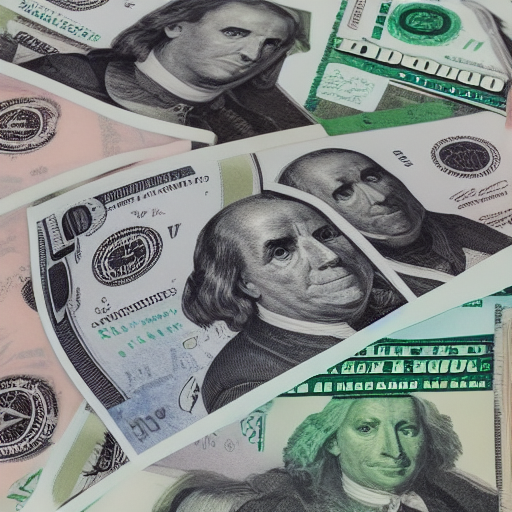Dividends are a popular method for companies to distribute profits to their shareholders. If you’re a shareholder and receive dividends, it’s important to understand the tax implications. In this article, we’ll explore whether you need to pay tax on dividends received from a company.
What are Company Dividends?
Dividends are a distribution of a company’s profits to its shareholders. When a company generates profits, it has the option to reinvest those profits into the business or distribute them among its shareholders in the form of dividends. These dividends serve as a reward for shareholders who have invested in the company and are entitled to a share of its earnings.
When Can I Take Dividends?

As a shareholder, you can take dividends when a company declares them. Dividends are typically declared by the company’s board of directors and approved by the shareholders.
However, it’s important to note that dividends must be lawful and comply with the company’s Articles of Association and relevant legal requirements. Unlawful dividends, which are paid out when a company does not have sufficient profits or distributable reserves, can lead to legal consequences for both the company and its directors.
Unlawful dividends can lead to an increase in the Director’s Loan Account which can have significant consequences in the event of company liquidation as the company director will be personally liable to repay this amount back to the company.
Paying Tax on Dividends – The Current Rates
In the United Kingdom, dividends are subject to taxation through HM Revenue & Customs. The tax rates for dividends depend on your income tax band. Here are the current rates for the 2023/24 tax year:
- Dividend Allowance: You can receive up to £1,000 of dividends tax-free in a tax year. This means the first £1,000 of dividends you receive won’t be subject to tax.
- Basic Rate Taxpayers: If you are a basic rate taxpayer, any dividends you receive above the £1,000 allowance will be subject to tax at a rate of 8.75%. This rate applies to the portion of dividends that falls within the basic rate band.
- Higher Rate and Additional Rate Taxpayers: For higher rate and additional rate taxpayers, the tax rates on dividends are higher. Higher rate taxpayers face a tax rate of 33.75% on the portion of dividends that exceeds the basic rate band. Additional rate taxpayers have a tax rate of 39.35% for the portion of dividends that falls within their income band.
It’s important to note that tax rates can change over time, so it’s advisable to consult the latest tax regulations or seek professional advice.
Can You Pay Tax on Dividends Through Self-Assessment
Yes, if you receive dividends, you may need to report and pay tax on them through the self-assessment system. Self-assessment is a method used by HM Revenue and Customs (HMRC) to collect income tax from individuals who have income that isn’t taxed at source, such as dividends. If you are required to complete a self-assessment tax return, you must include the details of your dividend income and calculate the tax due based on the applicable rates.
Is Dividend Tax Better Than Income Tax
The question of whether dividend tax is better than income tax depends on individual circumstances. Dividend tax rates are generally lower than income tax rates, which can make dividends an attractive option for shareholders. However, it’s important to consider other factors such as personal allowances, tax bands, and potential changes to tax regulations. Additionally, the specific structure and financial goals of each individual should be taken into account when determining the most tax-efficient approach.
Conclusion
Understanding the taxation of company dividends is crucial for shareholders and directors alike. Dividends are subject to tax, and the rates vary depending on your income tax band. It’s important to stay informed about the current tax rates, allowances, and regulations to ensure compliance and make informed financial decisions. If you have specific questions or require personalized advice, it’s recommended to consult a professional tax advisor who can provide guidance based on your individual circumstances.
If you have any questions regarding tax on dividends or are struggling with company tax matters and require some expert and impartial advice, please contact us here at Company Doctor and speak with one of our professional advisors about your situation.
References
The primary sources for this article are listed below.
https://www.gov.uk/tax-on-dividends
Details of our standards for producing accurate, unbiased content can be found in our editorial policy here.
Freephone including all mobiles
FAQs
Do I have to declare dividend income to HMRC?
Yes, you are required to declare your dividend income to HM Revenue and Customs (HMRC) if you are a UK resident and have received dividends from investments or shares. This applies whether you received the dividends from UK companies or foreign companies.
How do I avoid dividend tax in the UK?
While it is not possible to completely avoid dividend tax in the UK, there are certain strategies you can consider to minimize your tax liability. Here are a few options:
a) Utilize the dividend allowance: In the UK, there is a tax-free dividend allowance each year. You can receive dividends up to this allowance without incurring any tax liability.
b) Utilize tax-efficient accounts: Utilize Individual Savings Accounts (ISAs) or Self-Invested Personal Pensions (SIPPs) to invest in dividend-paying assets. These accounts offer tax advantages, such as tax-free dividends or tax relief on contributions.
c) Optimize your dividend payments: If you have control over your dividend payments, you can consider timing them strategically to maximize the use of your tax allowances in different tax years.
d) Share ownership: If you have a spouse or civil partner, you can consider transferring shares or investments to them to make use of their dividend allowances or lower tax brackets.
It is important to note that tax planning should be done within the boundaries of the law, and seeking advice from a qualified tax professional is recommended.
Should directors take salary or dividends?
The choice between salary and dividends for directors depends on various factors, including the individual’s circumstances and the structure of the company. Here are some considerations:
a) National Insurance Contributions (NICs): Salary is subject to NICs, while dividends are not. If reducing NICs is a priority, taking dividends may be more advantageous.
b) Tax efficiency: Dividends are generally subject to a lower tax rate compared to income tax rates. However, it is essential to consider the overall tax implications and thresholds to determine which option is more tax-efficient.
c) Personal circumstances: Directors should consider their personal financial goals, cash flow requirements, and other income sources before deciding on salary or dividends. Salary provides a regular income, while dividends are dependent on the company’s profitability.
d) Legal and compliance requirements: Ensure compliance with legal requirements, such as meeting the minimum salary threshold for directors or adhering to the Companies Act 2006.
Choosing between salary and dividends is a complex decision, and it is advisable to consult with an accountant or tax specialist who can provide personalized advice based on your specific circumstances.

